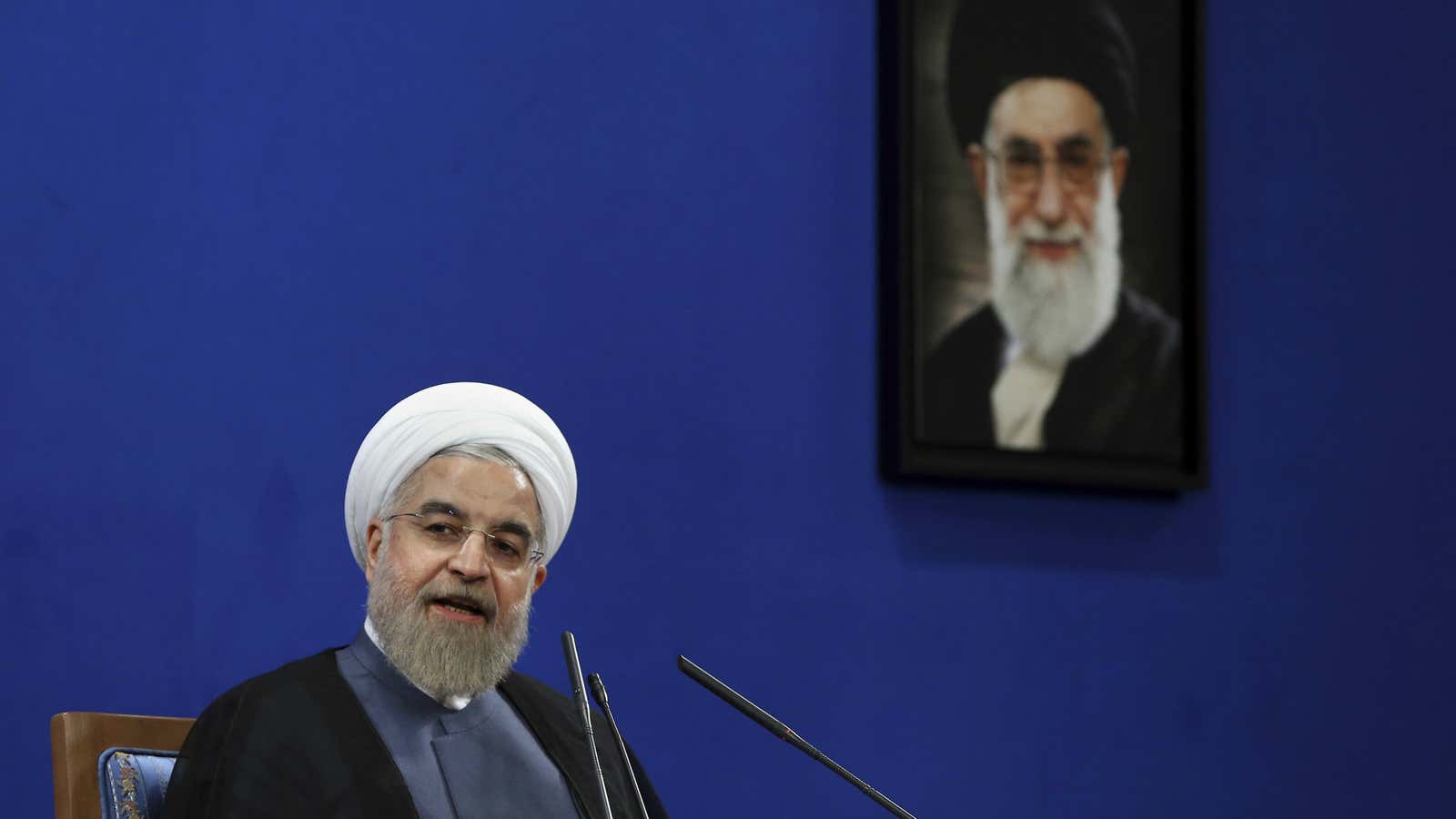Negotiators will gather later this week in Vienna to begin final talks in what has been a more than two-year marathon to settle an Iran nuclear deal. Almost no one thinks that the two sides will close a deal on time—instead, they are likely only to be getting truly serious by the advertised June 30 deadline, and will take up to another week to either shake hands or walk away.
In the meantime, Iranian leader Ali Khameini is again brandishing a sword over the talks with the West: Outsiders may not inspect Iranian military sites, he declared yesterday. Restrictions on nuclear development must last fewer than 10 years. And, as soon as an accord is signed, all sanctions must be lifted—before Iran itself does a thing.
If the West won’t agree to such conditions, says Iranian foreign minister Mohammad Zarif, the United States, and not Iran, will be the big loser. The US “will have lost a major opportunity, probably unique,” Zarif told the New Yorker’s Robin Wright.
It’s hard not to conclude that Tehran is engaging in psy-war at its most transparent.
But contrary to the talk from Tehran, the advantage, as we’ve previously said, lies with the West. This is mainly because of the relatively low price of oil and the sanctions stranglehold, both of which weigh more heavily on Iran with each passing day. That is, the longer the talks go on, the worse Iran’s economic angst gets.
The West’s other big advantage: ordinary Iranians want a deal. In his interview with Wright, Zarif said, “Our population is accustomed to making necessary sacrifices to preserve its dignity and its rights.” That’s probably true. But it’s also true that the population is tired of being accustomed.
According to a new poll by the University of Tehran’s Center for Public Opinion Research, 57% of Iranians support a negotiated settlement with the West. They want to keep a civilian nuclear program, and they distrust the US; but they also want the sanctions to end. This sentiment is consistent—an Iranian poll in May found even greater public support.
These local politics are the biggest reason why Iran will ultimately buckle—Khamenei and the Revolutionary Guard want to stay in power and retain their perks; they are acutely aware that, since at least 2009, the Iranian population has been trending reformist. Therefore, they have little choice but to simply push for, and accept, the best deal they can get.
Perhaps a bigger question is how far Iran’s counterparts in the negotiations will go in pressing their advantage. Tom Friedman, the foreign policy columnist for the New York Times, thinks the West may not be pushing the Iranians hard enough (video, starting at 5:00).
